The Future of Work: How AI Will Transform Professional Trends and Displace Jobs
The role of artificial intelligence in the use of professional trends
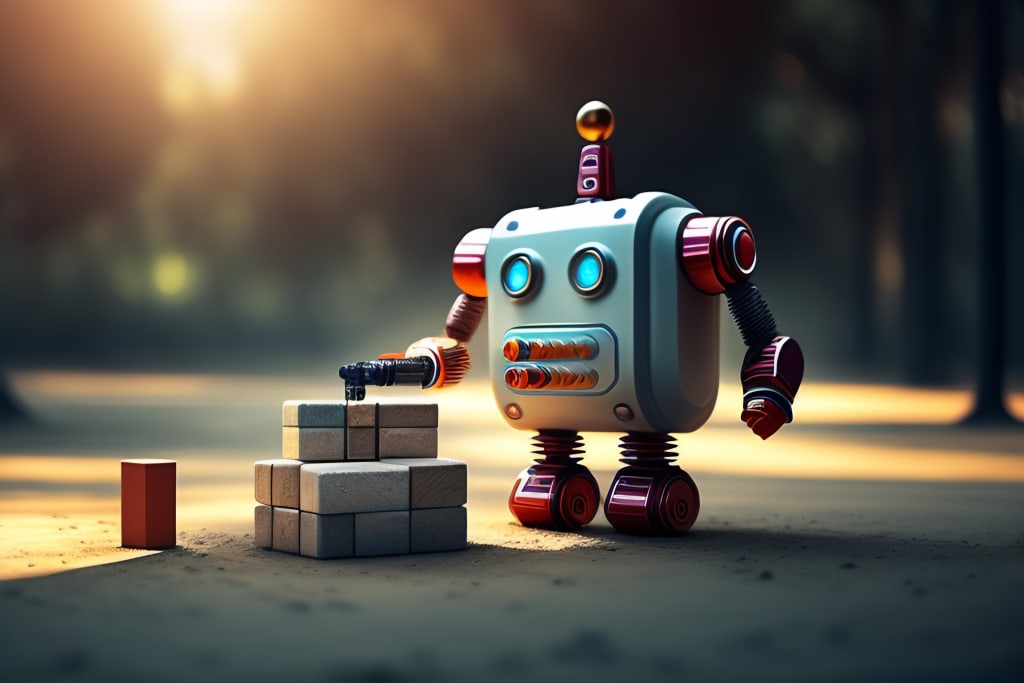
Introduction
Hello everyone! In this article, I would like to share my insights on the impact of artificial intelligence (AI) not only on our everyday lives but also on the employment landscape. With each passing day, an increasing number of companies and organizations are embracing powerful AI systems capable of tackling complex tasks that were once exclusively performed by humans. Consequently, numerous professions now face the risk of automation. In this piece, we will delve into the occupations that AI has already replaced, those that may soon be replaced, and explore the areas where AI is still unable to supplant human workers.
Professions Already Displaced by AI
Artificial intelligence (AI) has already displaced several professions that were previously carried out by human beings. Some of these examples are now widely recognized. Let’s explore a few:
- Factory Workers
Factory automation processes were already in place, but with the advent of artificial intelligence (AI), this advancement has become even more profound. An illustrative case can be found in Dongguan, Guangdong province, China, where in 2015, Changying Precision Technology Company inaugurated the world’s first fully robotic factory. Previously, around 650 employees were necessary for operations at this facility. Today, only 60 individuals are required, comprising engineers, managers, and controllers, with no need for manual labor. This transformation has yielded several positive outcomes, including a 162.5% surge in productivity and a fivefold reduction in defect rates.
This example vividly demonstrates the impact of AI and automation on the manufacturing sector. By employing robots and automated systems, processes become more efficient and precise. The integration of artificial intelligence into factories enables significant enhancements in production performance and a decrease in defect rates.
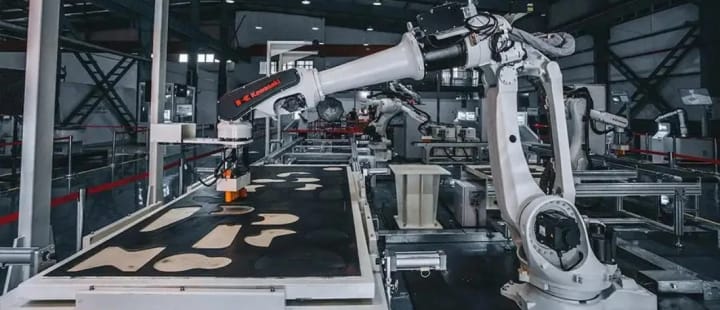
- Drivers — Couriers
Let’s turn our attention to the profession of driver-couriers, which is currently prevalent in the job market. However, in the near future, this occupation might become entirely redundant. You may have already heard about vehicles such as Tesla and Google Car, which are already capable of autonomous long-distance travel. As of 2023, companies like Amazon, FedEx, Alibaba, and others have already started utilizing robot couriers to directly deliver orders to customers. Nonetheless, this process is not entirely automated yet, as humans assist in overcoming obstacles, selecting optimal routes, and ensuring safety amidst pedestrians and other vehicles. According to forecasts, by 2030, up to 80% of all vehicles will be capable of driverless operation, significantly impacting public transportation, taxi services, and delivery operations.
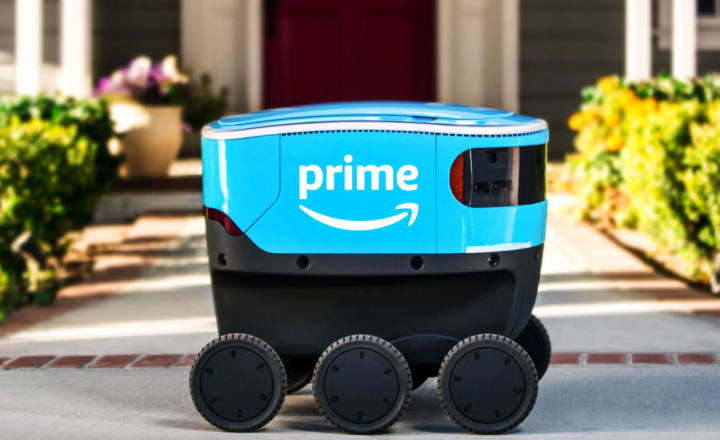
- Waiters/Waitresses
In the service industry, particularly in restaurants and fast-food establishments, robot waiters/waitresses have made their debut. These robots efficiently deliver food to tables and even bring smiles to the faces of patrons. For example, the Chinese company Pudu has developed an innovative delivery robot named Bellabot, which adeptly navigates various establishments, delighting visitors. However, the interaction of these robots with humans is currently limited, especially when it comes to handling specific orders. They also encounter challenges in crowded spaces, narrow passageways, or when faced with non-standard obstacles.
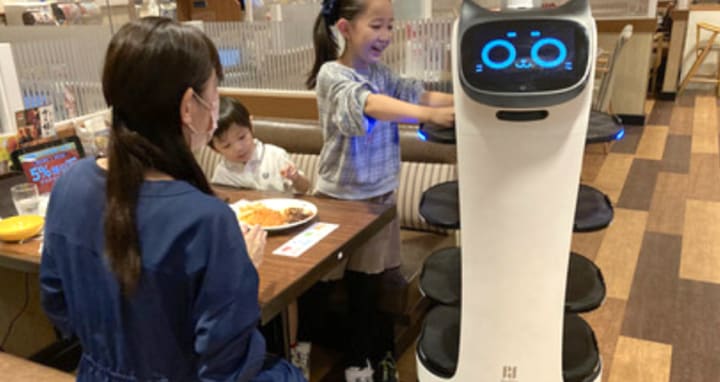
It is important to note that artificial intelligence (AI) has also made significant strides in text writing, translation, and working with photos and videos. AI possesses the potential to generate high-quality texts, streamline translation processes, and enhance media content processing.
These examples powerfully exemplify how AI is permeating diverse spheres of our lives, including the service industry and creative professions. Nonetheless, despite these advancements, AI still possesses limitations, and the human factor remains crucial, particularly in tasks that necessitate emotional interaction and adaptation to complex situations.
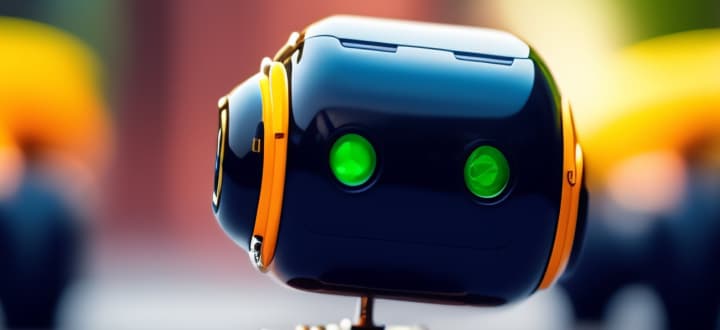
What AI will change by 2025
Now, let’s delve into the professions that are poised to be replaced by AI in the near future, specifically by 2025. As mentioned earlier, several occupations are already being displaced by AI, and this trend is expected to accelerate. AI will continue to advance its capabilities in text writing, translation, and we are witnessing the rise of robot deliveries, self-driving taxis, and autonomous vehicles. Furthermore, service personnel may be substituted by automated systems.
What professions will be replaced by AI by 2025?
Accountants
According to HubSpot, accountants are highly susceptible to being replaced by artificial intelligence (AI). Currently, AI is capable of analyzing legal and financial documentation, cross-referencing information from multiple sources, reconciling estimates and invoices with bank statements, and working with unstructured data.
Notable AI skills include data entry automation, automatic document generation (e.g., receipts and invoices), analysis of transaction journals for detecting suspicious activities, real-time monitoring of employee and departmental expenses, and automated initiation of payments and orders, as well as pricing analysis.
Translators
It’s widely acknowledged that AI-powered online translators and neural networks can perform text translation as competently as experienced foreign language teachers. With the progress in speech and voice recognition technologies, AI will likely excel at synchronous translation in the future.
Copywriters, Journalists, and Proofreaders.
The aforementioned ChatGPT program has already shown remarkable proficiency in correcting various types of texts. Moreover, it can generate articles, posts, essays, and scientific papers. Predictions suggest that up to 95% of news articles will be written by robots in the future. Consequently, media outlets and PR departments may witness an 80–90% reduction in staff. The remaining employees will be responsible for shaping the overall information strategy and overseeing the work of AI.
Some programmers
Remarkably, AI will eventually replace certain programmers as well. For instance, the ChatGPT program is capable of independently writing and correcting code in various programming languages. Andrej Karpathy, an engineer at Tesla, openly admitted that 80% of his code was created with the assistance of AI-powered GitHub Copilot.
This trend is expected to continue, potentially rendering some programmers and testers obsolete in the future. In January 2023, Microsoft announced plans to lay off 10,000 employees while simultaneously investing $10 billion in OpenAI, the creator of ChatGPT, DALL-E, and other AI products.
Google (Alphabet) also revealed plans to downsize its workforce by 10,000 employees by the end of 2022. However, this does not imply that AI will entirely supplant IT specialists. Instead, work in IT companies will shift towards implementing and leveraging artificial intelligence.
Bank Employees
In recent years, there has been a significant reduction in offline bank branches as most operations can now be conducted online. One of the most impacted professions is that of analysts. Machine learning algorithms have exhibited superior accuracy and speed in predicting borrowers’ creditworthiness, default risks, and other crucial parameters in the credit process.
The list of professions becoming obsolete also includes travel agents, retail salespersons, dispatchers, announcers, as well as lower- to mid-level analysts.
What AI Cannot Replace Yet ?
While artificial intelligence (AI) continues to advance rapidly, there are still certain types of work that cannot be fully replaced by AI, particularly those that involve direct interaction with people. Professions such as psychologists, educators, surgeons, manual laborers in construction, athletes, politicians, chefs, and creative professionals are examples of roles that rely on unique human qualities and cannot be completely substituted by AI.
AI can serve as a valuable tool in supporting and assisting professionals in these fields. It can aid in data analysis, provide recommendations, and streamline certain tasks. However, the intricate aspects of these professions, which encompass emotional intelligence, creative thinking, adaptability, and interpersonal interaction, are distinctively human attributes that are challenging to replicate with artificial intelligence. While AI may gradually assume certain responsibilities within these fields, the human touch and expertise will remain essential.
It is essential to recognize and appreciate the significance of human skills in these professions. Emotional intelligence, for instance, plays a pivotal role in psychology, education, and many other areas. Creative thinking and problem-solving abilities are central to the work of artists, designers, and innovators. Interpersonal skills and leadership qualities are vital for politicians and team managers. These distinct human qualities cannot be easily replicated or replaced by AI.

Conclusion
The future of various professions is indeed threatened by the rapid development of artificial intelligence. Many individuals are at risk of being displaced from their jobs. However, it is crucial to acknowledge that AI has its limitations. While it excels at routine tasks and data analysis, it lacks the capacity for emotional understanding and human connection.
In light of these advancements, individuals should consider reskilling and upskilling themselves to adapt to the changing job market. However, it is equally important to nurture and prioritize soft skills alongside technical expertise. Soft skills, including effective communication, self-organization, creativity, emotional intelligence, stress resilience, and leadership, significantly enhance a person’s work in their professional sphere. These skills should not be underestimated, as they are crucial for success in the age of AI.
In my opinion, individuals who possess a well-rounded skill set, encompassing both technical and soft skills, will be in high demand. By continuously developing and cultivating these attributes, individuals can enhance their job prospects, navigate career transitions, and maintain long-term career stability in the evolving landscape of work.
If you have any further questions or need assistance with anything else, feel free to let me know!
Thanks for reading, have a nice day :)
About the Creator
Lukas Highway
My name is Lucas Highway, I am a freelancer who is passionate about design and gaming. I love creating content.






Comments
There are no comments for this story
Be the first to respond and start the conversation.